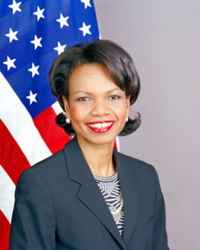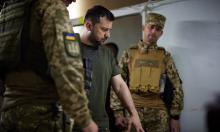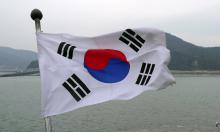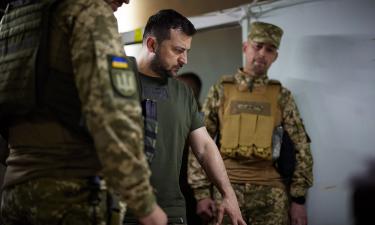Condoleezza Rice to meet with Syria's foreign minister. Meeting with Iran not likely

The first high-level talks of the year will be held Thursday between U.S. Secretary of State Condoleezza Rice and Syria's foreign minister, a U.S. official said.
But a substantive meeting between the United States and Iran - another staunch U.S. Mideast foe - appeared less certain.
"We expect that there will be a discussion between Secretary of State Rice and the Syrian foreign minister about Iraqi security issues," said a senior U.S. State Department official, who spoke on condition of anonymity because the meeting was still being arranged.
Both the United States and Iran had also spoken favorably of a possible meeting, but the chances for that remained unclear, and neither side had commented publicly on any immediate arrangements.
The confirmation of the Syrian meeting came as Iraqi Prime Minister Nouri al-Maliki opened the conference by calling on all countries to forgive his country's enormous foreign debts - estimated at about US$50 billion (EUR36.8 billion).
Another US$100 billion (EUR73.59 billion) has already be written off by the Paris Club of lender nations.
But Saudi Arabia's foreign minister made no immediate public pledge - saying only that his country was in talks with Iraq and would consider such forgiveness.
Iraqi and U.S. officials had said previously that Saudi Arabia privately already had committed to forgiving 80 percent of Iraq's US$17 billion (EUR12.51 billion) in debt to it.
But Saudi Foreign Minister Saud al-Faisal told the conference only that his country "has expressed its readiness to alleviate some of the debts on Iraq" and was currently in discussions with Iraqi officials on the issue.
Signs of new tension between Iraq and Saudi Arabia had emerged in the leadup to the conference when Saudi King Abdullah turning down a request to meet with al-Maliki. The United States said publicly at the time that it wished the Saudi king had met the Iraqi leader.
Al-Faisal, addressing the conference, also renewed his country's offer to provide Iraq with US $1 billion in loans, on the condition that the money be distributed equally among "Iraq's geographical sectors." He insisted that more Sunni Arabs must be brought into Iraq's political process - the key dispute between Iraq and its neighbors.
The tension between Iraq and the Sunni Arab countries around it was a key factor as the meeting on the troubled country's future began.
In his speech opening the conference, al-Maliki pledged to institute reforms that the United States and Sunni Arab governments have repeatedly called for, including bringing more Sunni Arabs into the Iraqi political process.
Al-Maliki said forgiving Iraq of its debts was the only way the country could embark on much needed reconstruction projects.
"We call on all the friends and brothers participating in this conference to forgive Iraq all its debts in order to enable it to start the projects," he said.
Although a time had not been set for the meeting between Rice and Syrian Foreign Minister Walid Moallem, a substantive meeting with her Iranian counterpart appeared doubtful.
Rice has said she was willing to meet Manouchehr Mottaki, after years of accusations and name-calling between the nations. Iranian President Mahmoud Ahmadinejad had also expressed interest in such a meeting.
The U.S. has put both regional heavyweight Iran and the less influential Syria in diplomatic deep freeze in recent years.
But the bipartisan Iraq Study Group, U.S. allies and lawmakers of both parties have urged President George W. Bush to reconsider in the hope that Iran and Syria can be persuaded to use their influence inside Iraq.
Iraq and many Arab countries have been particularly eager, even desperate, for such talks - saying they are only the way to stabilize Iraq and lessen Iran's growing influence in the region.
The two-day conference in this Red Sea resort town brings together officials from Iraq, the U.S., Iran, Russia, China, Europe and Arab nations.
If Rice meets with Moallem, it would be the first such high-level talks since the February 2005 assassination of former Lebanese Prime Minister Rafik Hariri. Syria denies it had anything to do with the killing, but U.S. and European officials have since shunned the Damascus government.
The United States has not had relations with Iran since 1979.
Subscribe to Pravda.Ru Telegram channel, Facebook, RSS!




